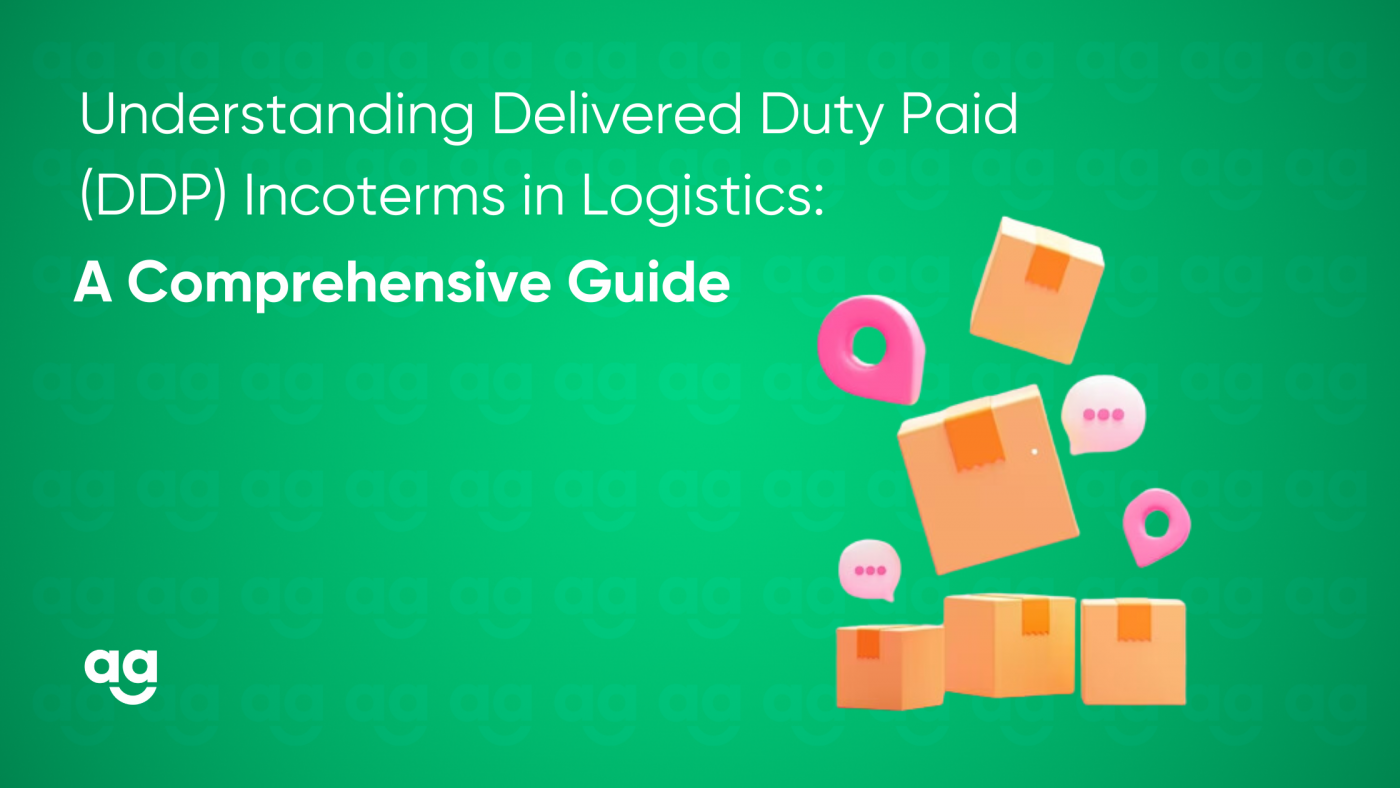Introduction
Businesses involved in foreign transactions face a complicated web of regulations, costs, and responsibilities in the ever-expanding global trade scene. The selection of Incoterms or International Commercial Terms is a critical factor that is important in this situation, and Delivered Duty Paid (DDP) is one that stands out.
We will explore the nuances of DDP Incoterms in this extensive blog, illuminating their importance, ramifications, and influence on the dynamics of global logistics.
Explaining Delivered Duty Paid (DDP)
Delivered Duty Paid, or DDP, is a word used in international trade logistics that denotes the seller’s complete responsibility for the entire shipping procedure. This includes managing the products’ transit and customs clearance in addition to delivery of the goods to the buyer’s specified location. The seller is responsible for covering all associated costs and charges, including import taxes and customs. Under a DDP arrangement, the buyer’s main responsibility is to unload the commodities as soon as they are delivered. This code phrase allows the consumer to fully understand the cost and expedites the logistical process.
Key Components of DDP Incoterms
1. Transportation and Delivery
Under DDP, the seller arranges and pays for the entire transportation process. This includes everything from the point of origin to the destination which is agreed-upon, ensuring a smooth and uninterrupted flow of goods.
2. Customs Clearance and Duties
One of the special features of DDP is that the seller takes care of customs clearance in both the exporting and importing nations . This means handling the necessary documentation and paying relevant taxes and fees to ensure a hassle-free transaction for the buyer.
3. Transfer of Risk
The seller is fully liable for any loss or damage up to the point at which the buyer receives the shipments. DDP is therefore a popular option for clients looking to lower their level of risk throughout the international shipping procedure.
4. Allocation of Costs
DDP covers a broad spectrum of expenses, such as taxes, customs charges, insurance, and transportation. To guarantee an open and advantageous transaction, it is imperative that both buyers and sellers comprehend and proficiently handle these expenses.
Advantages of DDP Incoterms
1. Simplicity and Convenience
DDP makes logistics easier for the buyer by requiring them to do absolutely nothing more than waiting for the packages to arrive at the specific location. This ease of use is especially beneficial for businesses that have limited experience with international trade.
2. Risk Mitigation
Ecommerce sellers that use DDP have the opportunity to win over their buyers’ trust by assuming the risks which are associated with international delivery. This can be a very useful way, especially in markets where customers are skeptical about potential problems with the supply chain.
3. Global Market Access
By offering DDP terms, sellers can expand their reach into new markets, as the comprehensive nature of the Incoterm minimizes the burden on the buyer and makes cross-border transactions more accessible.
Considerations and Challenges
Despite its advantages, DDP does pose challenges, such as potential disputes over the allocation of costs and complexities in managing customs processes. Sellers must carefully consider these factors and communicate effectively with buyers to ensure a smooth and transparent transaction.
Conclusion
Selecting the appropriate Incoterms is a crucial choice in the field of international logistics that can have a big impact on transaction success. Delivered Duty Paid shows up as a potent instrument for companies managing the intricacies of international trade because of its extensive coverage and risk allocation. Both buyers and sellers can build deeper relationships, lessen uncertainty, and clear the path for smooth international transactions by being aware of the subtleties of DDP Incoterms.







 Shipping
Shipping







